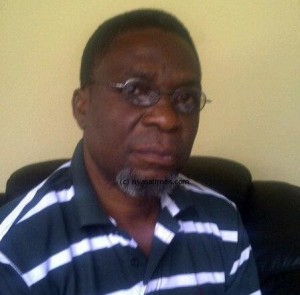Centuries ago, corrupt African leaders and Western traders made an unwitting yet deliberate business pact. A few Africans made fortunes; Western interests found cheap labour, and millions of people lost their freedom.
The African plight is not much changed now, half a century after the so-called African independence boom of the sixties. Many African leaders are still selling off what is most valuable to Africa— its resources and the welfare of its people — while pocketing huge bribes and leaving their citizens destitute.
The estimates are naturally varied, reflecting the clandestine and secretive nature of the destruction of Africa, masterminded from within by unscrupulous leaders. It is not a secret, however, that billions and billions of dollars from across the poorest continent in the world have ended up in the pocket of very few selfish individuals ever ready to sacrifice the welfare of their people at the altar of self-enrichment.
Sani Abacha of Nigeria is suspected to have pilfered between $5 billion and $8 billion. There are claims that Egypt’s Hosni Mubarak looted up to $ 70 billion, Muammar Gadhafi between $30 billion and $80 billion; and Mobutu Sese Seko is said to have stolen up to $5 billion.
Watchdogs, activists and citizens of Africa are more than justified to be disturbed by such figures, for when one considers the amount of transformation the sum of these amounts could have brought to a continent ravaged with untold poverty, one cannot help but be truly appalled and infuriated.
It would appear that institutions meant to be watchdogs against corruption: the judiciary, police, security services and rule of law, are failing the continent and simply, selectively serving the interests of the elite classes. This could be a legacy that Africa inherited from its colonial past, when such institutions were more often subservient to the all-powerful colonial administrator or governor. In the colonial days, the colonial private sector, for the most part, produced for export to the imperial market and as such was usually deeply dependent on the colonial government for licenses, contracts and subsidies. This sector rarely held the colonial government to account. With the exception of a few, colonial media sources were equally bridled.
This legacy however, cannot now be used as an excuse for the continued plunder of the continent from within, by the very people that are now entrusted with leading its re-birth and development. Upon close analysis, it is clear that instead of changing colonial era institutions, laws and values for the better, African ruling parties and leaders continue to entrench the deeply compromised governance systems that have kept Africa backward and against which they fought so much, claiming and promising redemption from such chains.
The postcolonial Africa, 50 years after the so-called independence struggles, is an Africa where greed and self-enrichment politics rule. The ousted colonial elite seems to have simply been replaced by a similarly narrow elite class, of the independence and liberation movements, the dominant independence leader and dominant ‘struggle’ families, or the dominant ethnic group or political faction. A centralized political culture very much similar to the colonial administration remains, and it is this refusal to serve the people that is destroying Africa from within.
In post independence Africa, the newly acquired state bureaucracy, military, judiciary, nationalized private industries are often seen simply as the ‘spoils’ of victory. A reward for the struggle, first for independence, and now for whatever election fight is staged by whatever quasi democracy exists in whatever African state. The process of governance in Africa is opaque and unaccountable with ‘election struggle cliques’ dishing out patronage – jobs, government tenders, and newly nationalized private companies – to their political allies, ethnic group(s) or regional interests.
As if the ravaging of Africa and the subjection of vast populations for the benefit of the elite few is not enough, in recent times, African leaders have began to use anti-corruption and embezzlement charges as political tools to keep their opponents out of contention and perpetuate their own administrations and, with that, their own self enrichment.
As evidenced in South Africa, Zambia, Malawi and other countries across Africa, it is now almost inevitable that former leaders will, as soon as they begin to show signs of political rehabilitation, be subjected to charges of corruption that often are more political than based on law or a genuine desire to fight corruption.
Not too long ago in Zambia, opposition leaders were arrested, youth meetings banned, political rallies blocked by riot police amidst allegations of judicial interference and ministerial corruption, smear campaigns in government media and threats and lawsuits against journalists. Somehow, the Zambian Government found a way to charge opposition leaders Nevers Mumba and Hakainde Hichilema, who found themselves facing a string of charges including corruption, defamation and unlawful assembly.
In South Africa, in 2008, a High Court judge rebuked then president Thabo Mbeki’s administration, acidly, pointing out that it was “most unfortunate” that the government had rekindled its case against Mr. Zuma within two weeks of the accused man’s victory over Mr. Mbeki for the party leadership of the governing African National Congress, and that this suggested a political motive behind the prosecution.
The Malawian situation is even more curious. Virtually all former presidents from Kamuzu Banda to Joyce Banda have themselves or their estates been investigated for corruption. It points to the fact that political leaders know that they are all corrupt.
The legacy that most African leaders have left on the continent is one of greed, selfishness and impunity, and a lack of any desire to develop Africa or help the people they profess to serve. This is despicable enough, and by itself, it is a sure hindrance to the economic growth and development of the continent. Yet it is even more despicable that instead of fighting corruption, African leaders who themselves are often deeply engaged in corruption are now unscrupulously using corruption to entrench and extend their own greed and continue to plunder Africa.
For Africa, this is a time when the capacity of the existing corruption-fighting institutions need to be strengthened, not used for witch-hunts and silencing political opponents. Africans need independent anti-corruption drives that are immune from political interference and follow the rule of Law, led by agencies in the private sector or civil society. Such agencies will ensure first that proper valuations of alleged stolen wealth are made before individuals’ names are ruined by cheap smear campaigns. They will also ensure that corrupt officials are brought to book, as well as forcing police and public watchdogs to follow up on cases of corruption exposed in the media and by whistleblowers. Furthermore, these institutions must be independent from the presidential office or the executive department, such as the police or justice ministry, and be accountable directly to parliament and to the courts.
It is the responsibility of citizens in Africa to ensure that ruling parties punish the bad behaviour of their leaders and party members legally, socially and politically, as well as reward good behaviour. If this is highlighted and addressed publicly, exemplary leaders will encourage ordinary citizens (themselves included) to uphold the rule of law. Civil society and the media will have to play a role in ‘naming and shaming’ those leaders who espouse corrupt values while encouraging those who behave with integrity.
Africa needs a new calibre of leadership at all levels. Africa needs competent and honest, candidates who operate with integrity and not simply driven by vengeance or the desire to remain in office for life. Electoral candidates must be judged on the basis of competence, moral character and genuine commitment to public service and to the African Ideal. It is a shame that just as it has been through the ages, greed and self-interest is destroying the African continent from within.


.jpeg&w=60&q=100&h=60)









